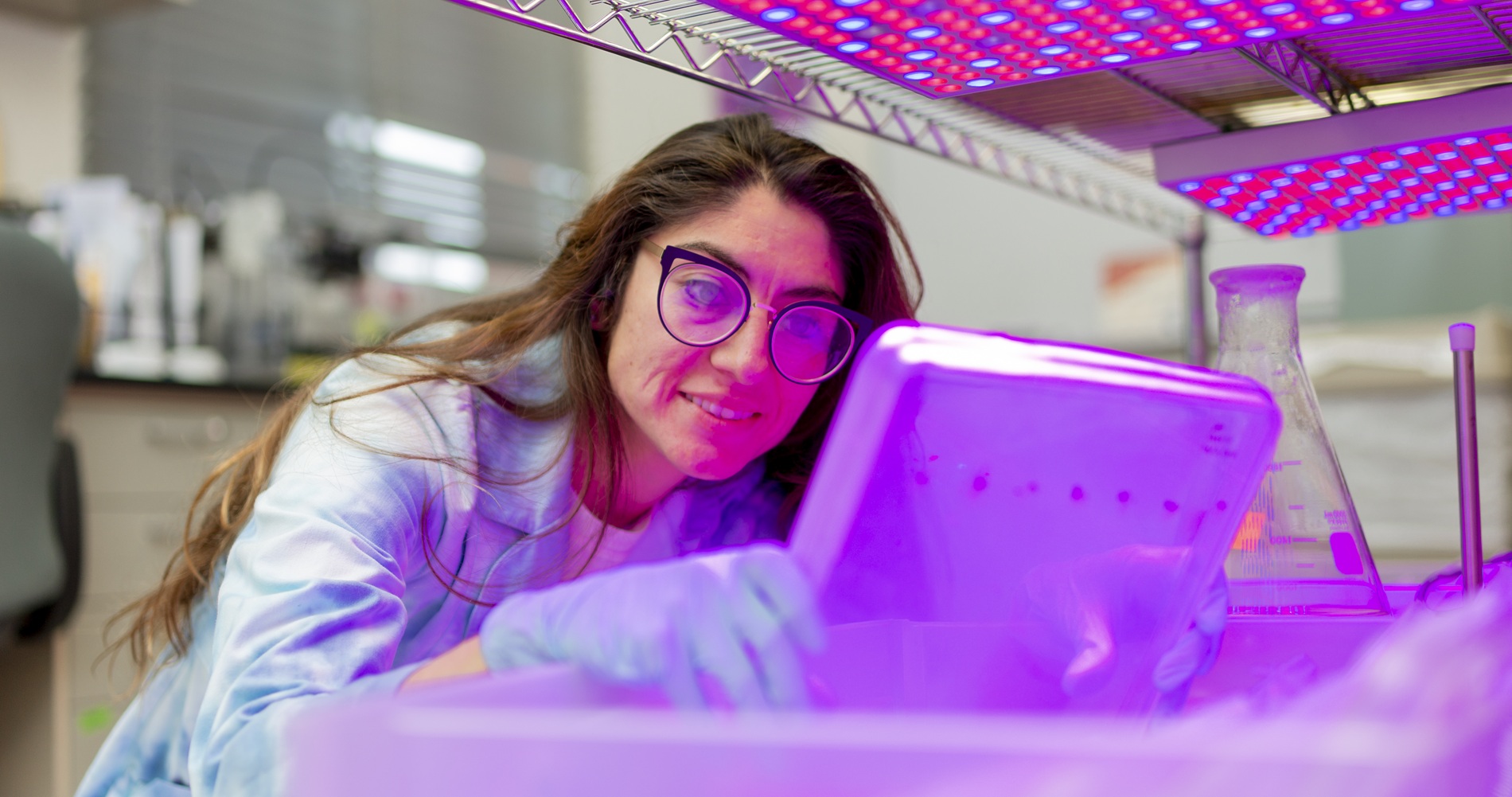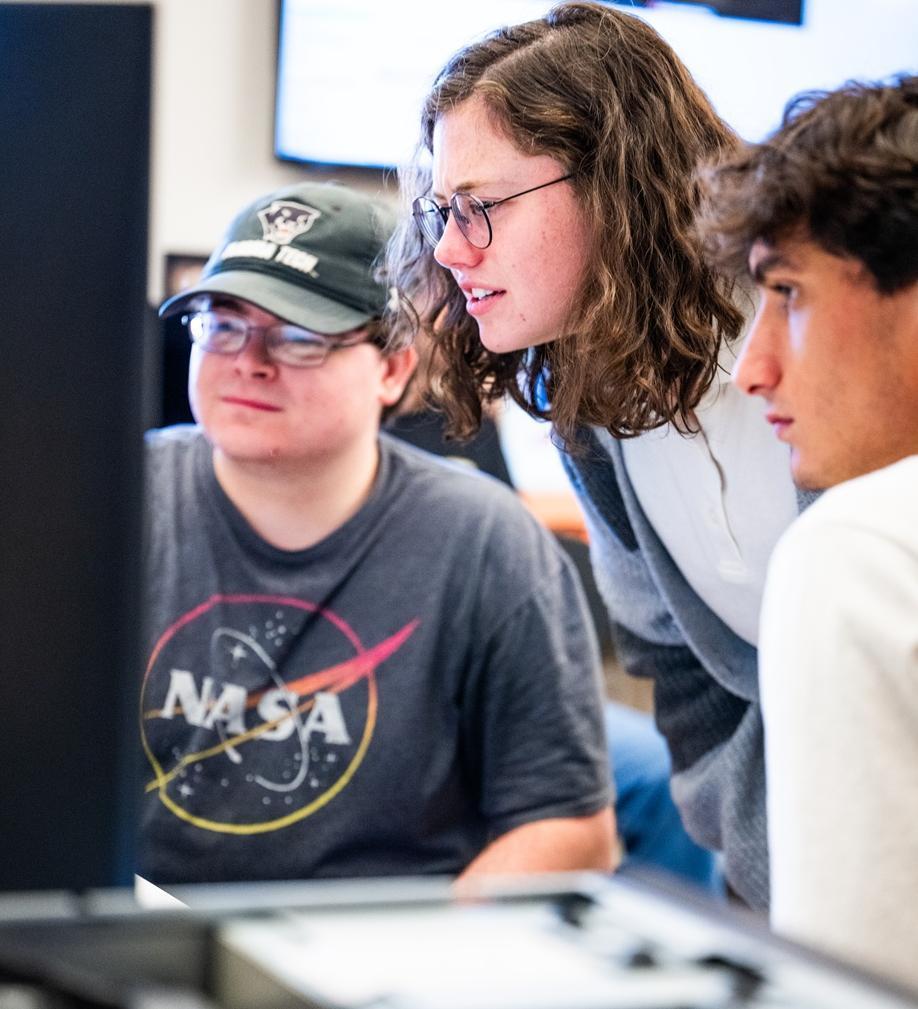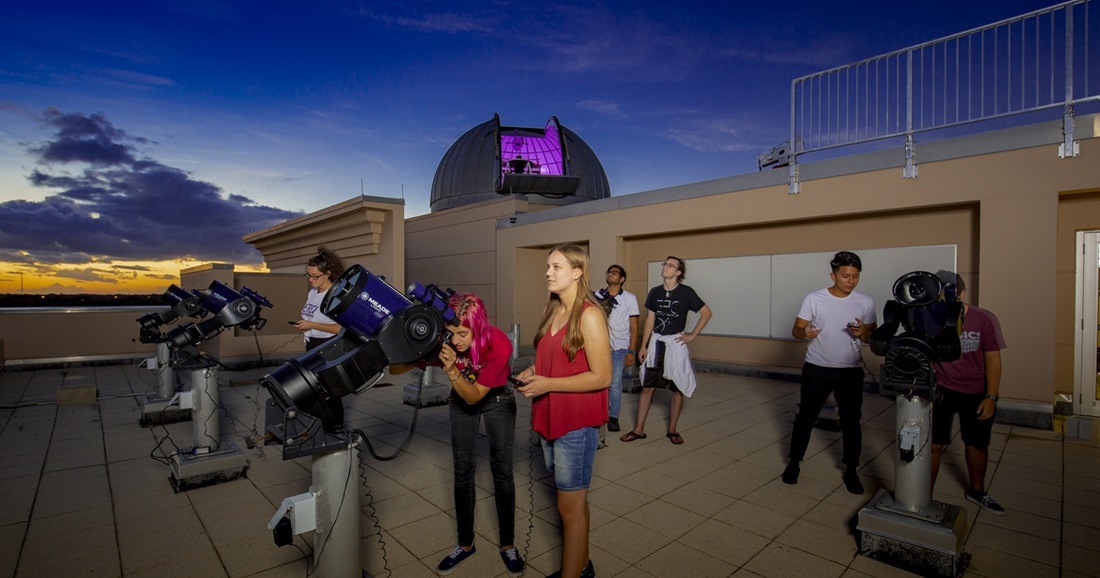Want to Reach Into the Universe? Our High-Tech Facilities Make It Possible.
As an astrobiology student, you'll explore the universe from the Ortega Observatory atop the F.W. Olin Physical Sciences Center—home to all physics and space sciences programs. Here, you'll find cutting-edge labs, cleanrooms, darkrooms, a 3,500-square-foot high bay and smart classrooms with full multimedia capabilities.
You'll also have access to the L3Harris Center for Science and Engineering, which houses advanced teaching and research labs, computer facilities and an electron microscope suite.
Florida Tech is a founding member of the Southeastern Association for Research in Astronomy, giving students online access to powerful one-meter-class telescopes at observatories in Arizona, Chile and the Canary Islands, as well.

 Give to Florida Tech
Give to Florida Tech 


